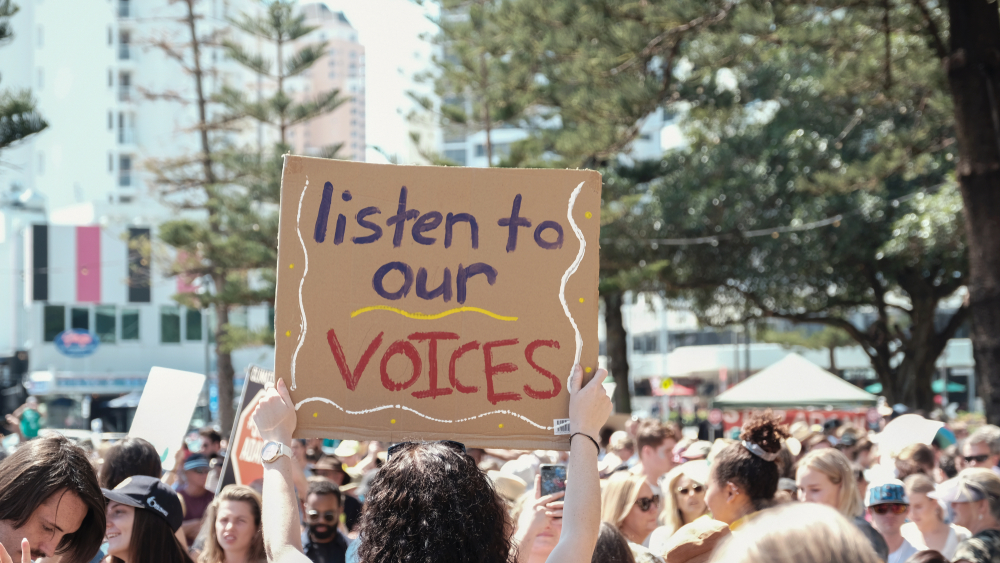Last month, I was lucky enough to take part in the 21st International AIDS Conference (AIDS 2016) in Durban, South Africa. Though harm reduction, and the rights of people who use drugs were almost non-existent on the conference agenda, I managed to visit a harm reduction project working in Cape Town, South Africa and see what services are available in the country.
The Step Up project in Cape Town is run by the TBHIV Care Association, an NGO with almost 1000 staff operating in 16 geographical areas in South Africa. The organisation focuses on prevention, diagnosis, treatment, care and adherence support for people infected with, and affected by TB and HIV.
TB/HIV Care began providing harm reduction services in Cape Town at the end of June 2015 and it is currently the only such project working in the city; however, it supports projects similar to Step Up in Durban and Pretoria. The aim of the project is to provide mobile outreach HIV prevention services and access to other needed healthcare services for people who inject drugs (PWID).
Harm Reduction in the region started after UNODC conducted a rapid assessment of HIV prevalence and HIV risk among PWID in five South African cities in 2013. This study showed that the overall HIV prevalence among the study participants was 14 per cent (in Cape Town specifically it was 9 per cent). It was clear that something needed to be done, though many people denied (and continue to deny) that the concentrated HIV epidemic among PWID is an issue for South Africa.
Before starting the project in Cape Town, TBHIV Care mapped locations of drug use in the city, with the mapping process informing where and when services should be delivered. The project team consists of eight people and they do outreach four times a week during the day time as, surprisingly, most PWID are less accessible in the evenings. For those that do need services at night (e.g. those engaged in sex work), the project is looking into adding night outreach to its work.
Initially the outreach team consisted of a driver for the outreach bus, a nurse and five peer educators who are mostly active users from the community. The key benefit of involving so many peer educators was access to the community, but there were problems with functionality and the appropriateness of an 8:00-17:00 work day for these individuals. That is why now the current model involves two peer educators, a peer coordinator, a nurse, an outreach worker (someone more trained, not from community) and the driver.

During outreach, they provide testing and counselling on HIV, TB and sexually transmitted infections (STIs), and offer sterile injection equipment. The supplies are packed in bags each containing the standard package of 14 needle/syringes, injectable water, cotton wool filters, and 28 alcohol swabs. Also they provide containers for the safe disposal of needles and syringes.
Other services provided are: distribution of condoms and lubes, peer education on minimizing risky behaviours, and referral to a range of health, psycho-social, paralegal and other services. They also provide education on overdose prevention and management, but are unfortunately unable to provide naloxone even though opioids are among the most popular drugs and overdoses are an issue among the community. Naloxone is available only from pharmacies on prescription or from paramedics who should (but don’t always) have it.
The project does not currently provide hepatitis C (HCV) testing and treatment referral, as they do not have the resources to test. However, there is plan for participation in a 3-year study on HCV in South Africa involving testing and referral to the University of Cape Town (UCT) liver clinic at Grootte Schuur hospital. This will probably start at the end of September, 2016.
Step Up project has served 650 people since the beginning of the project, 400 of whom use the service on regular basis (meaning they have been seen every month over the past three months). They do not provide any other office-based services like self-help groups as they don’t have enough place for that but they do organize monthly community advisory group meetings where current issues such as challenges with law enforcement or improper needle disposal are discussed. At these meetings, the clients provide their input on the project, and health education is provided. Also, a few times a week, people can receive consultations on detox (an outreach worker supports clients in accessing detox, privately funded opioid substitution therapy (OST), in-patient treatment, and other health and psychosocial services).

Andrea (Key Populations Programme Coordinator (PWID)) and Rudolph (Key Populations Project Coordinator (PWID)) who hosted me in the office
If the project receives funding from the Global Fund grant, there is a plan to open a drop-in centre this year to be located in a separate building which will allow the Step Up project to expand the number of services it offers.
On a weekly basis, the project team collects dirty needles from the streets of Cape Town. Currently the Step Up Project collects and disposes approximately 10,000 per month, which includes those returned by the service beneficiaries as well as the approximately 1,000 that they gather from the streets. There is a supplier who removes full sharps bins for incineration on a regular basis. There are volunteers from the community who work for approximately two hours to collect needles from the streets. The Step Up Project tries to involve community representatives in the work of the project as much as possible depending on their skills and abilities. They are initially involved in doing casual work (helping with clean-up) but are offered the possibility of increased involvement in other work such as peer education. This process is fairly new for the team.
During outreach anyone may receive one harm reduction kit unconditionally. If someone wants an additional kit, they can receive one in exchange for returning 10 used syringes. Since it is not safe for drug users to carry used syringes (as police could use this to arrest them for “possession”), Step Up doesn’t require exchange for provision of syringes but uses the combined approach.
Police from time-to-time arrest the service beneficiaries and take harm reduction materials from them. The project team tries to build relationships with police but the police don’t have any official policy toward harm reduction. The most negative experience was when the Chief of Police in one of the city districts refused to communicate with the project and threatened to arrest the members of the outreach team for the promotion of drug use. Also, there were a few cases when peer educators were arrested for possessing used syringes. But, in general, in the opinion of the project members there are no any major political barriers preventing the implementation of needle and syringe programmes in South Africa.
Although OST is legal in South Africa, it is only available in private clinics and is by and large not accessible for free for those in need. The level of coverage is very low. There is one short term (six month) program in Cape Town that is available for free but it operates more like a prolonged detoxification program. Also, OST is available in a very limited geographic area (only the Mitchell’s Plein area). It is not possible to take Suboxone home; clients need to come every day for medication and other treatment e.g. counselling.
The main donors of the Step Up project are the CDC, PEPFAR and Mainline (a Dutch organization). They also receive some support from the South African government on a constant basis with additional episodic support. For example, the Department of Health provides them with test kits on a monthly basis, and occasionally also provides gloves and other materials.
Once when there was a risk of interruption in the supply of needles the government provided sufficient stock for them to continue service delivery until their normal supply could be resumed. No Global Fund support is available at the moment, but they submitted an application has been submitted to secure such funding. If successful, Step Up will have enough funding to ensure their work for the next three years.


